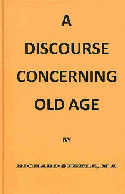Detecting Emergent Churches Methodology Part 2
Detecting Emergent Churches Methodology
Detecting if your church is an Emergent Church
By David Cox
This is our continuing examination of the Emergent Church movement, looking at what are the signs of the Emergent Church, so that we can detect if our church is going emergent.
What is their methodology?
 God has set our methodology in concrete. We are to preach the gospel, which is to declare man’s sinfulness (which causes a bad feeling in people who are unsaved and saved), and then to declare God’s love in that God sent his Son Jesus to the cross to die for our sins. He died for us taking on himself our sins, and in his resurrection, his offering for our sins is shown as being accepted because God the Father, God the Son, and God the Holy Spirit resurrected Jesus.
God has set our methodology in concrete. We are to preach the gospel, which is to declare man’s sinfulness (which causes a bad feeling in people who are unsaved and saved), and then to declare God’s love in that God sent his Son Jesus to the cross to die for our sins. He died for us taking on himself our sins, and in his resurrection, his offering for our sins is shown as being accepted because God the Father, God the Son, and God the Holy Spirit resurrected Jesus.
The Emergent Church says that we need to change all that, and everything else about “doing church” as they call it, and make a new form rather than that which God has given us. Inherent in this, they condemn the old ways that God has given us as unacceptable for today, and that we need to redo them. Again they show authority from themselves while rejecting the authority of God. Their declaration that “church as we have been traditionly doing it doesn’t work”. Why does it work? It doesn’t work for them because they have been doing the traditional way without faith, and without real love and obedience to God, so it won’t work under those conditions. Continue reading →
 Although there are some problems with this man’s words, (he is just telling what the Koran says), but some of the points are very interesting. Apparently he was converted to Catholicism. Continue reading
Although there are some problems with this man’s words, (he is just telling what the Koran says), but some of the points are very interesting. Apparently he was converted to Catholicism. Continue reading 









 Westerners understanding Islam
Westerners understanding Islam